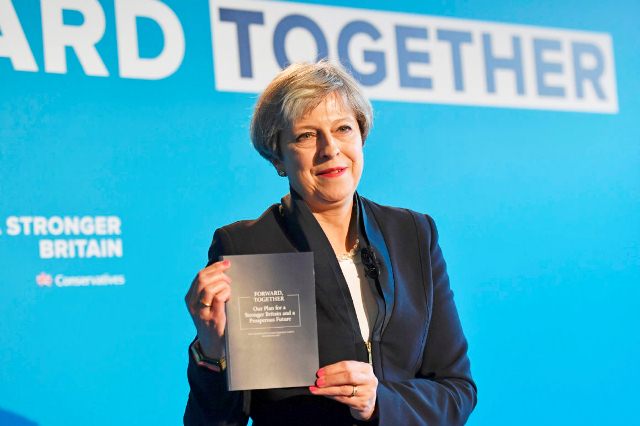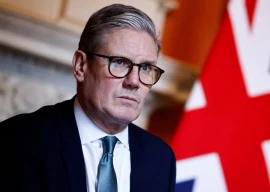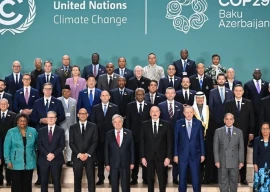
The governing centre-right party is still on course for a comfortable victory, but no longer enjoys the 20-point lead that provoked talk of a landslide at the start of the campaign.
Newspaper commentators warned of a backlash against May's proposed plan to address the rising cost of social care for the elderly, which could see higher bills for many people.
"Tory wobble as cuts for elderly slash May's lead," headlined the Sunday Times, as a YouGov poll found the party's lead halved in a week.
Thirty Pakistani-origin candidates in the run in upcoming UK elections
The online survey put the Tories down five points at 44 percent and Labour up four points at 35 points, the closest gap since last year.
YouGov found 40 percent of voters opposed the social care plan, and 35 percent supported it.
Foreign Secretary Boris Johnson said it was "necessary" to meet the challenges of an ageing population.
"I think it is a mark of Theresa May's bravery and candour with electorate that she is doing this," he told ITV television.
May called the snap election in April, saying she wanted a mandate to go into the negotiations on taking Britain out of the European Union.
British PM, queen mark end of parliament before June vote
Labour had always insisted the opinion polls would narrow as the election nears.
Its leader Jeremy Corbyn claims his plans to nationalise the railways, raise taxes and invest in public services are widely popular.
An ORB/Sunday Telegraph survey put the Conservatives on 46 percent, unchanged from last week, and Labour up two points on 34 percent.
An Opinium/Observer poll, taken after Labour's manifesto launch but before the Tories', put May's party down one point in a week at 46 percent, and Labour up one point at 33 percent.
A Survation/Mail on Sunday poll put the Conservatives at 46 percent and Labour at 34 percent. It is based on new methodology, so cannot be compared to previous results.
Labour has also benefited from the decline of smaller parties during the campaign, experts say.
The pro-European Liberal Democrats have fallen from around 11 percent to around eight percent.
The UK Independence Party (UKIP), a once potent force which has struggled to stay relevant since last year's referendum vote for Brexit, is languishing at between three and seven percent.

1722586547-0/Untitled-design-(73)1722586547-0-165x106.webp)


1732326457-0/prime-(1)1732326457-0-165x106.webp)




1731325890-0/trump-(24)1731325890-0-270x192.webp)







COMMENTS
Comments are moderated and generally will be posted if they are on-topic and not abusive.
For more information, please see our Comments FAQ